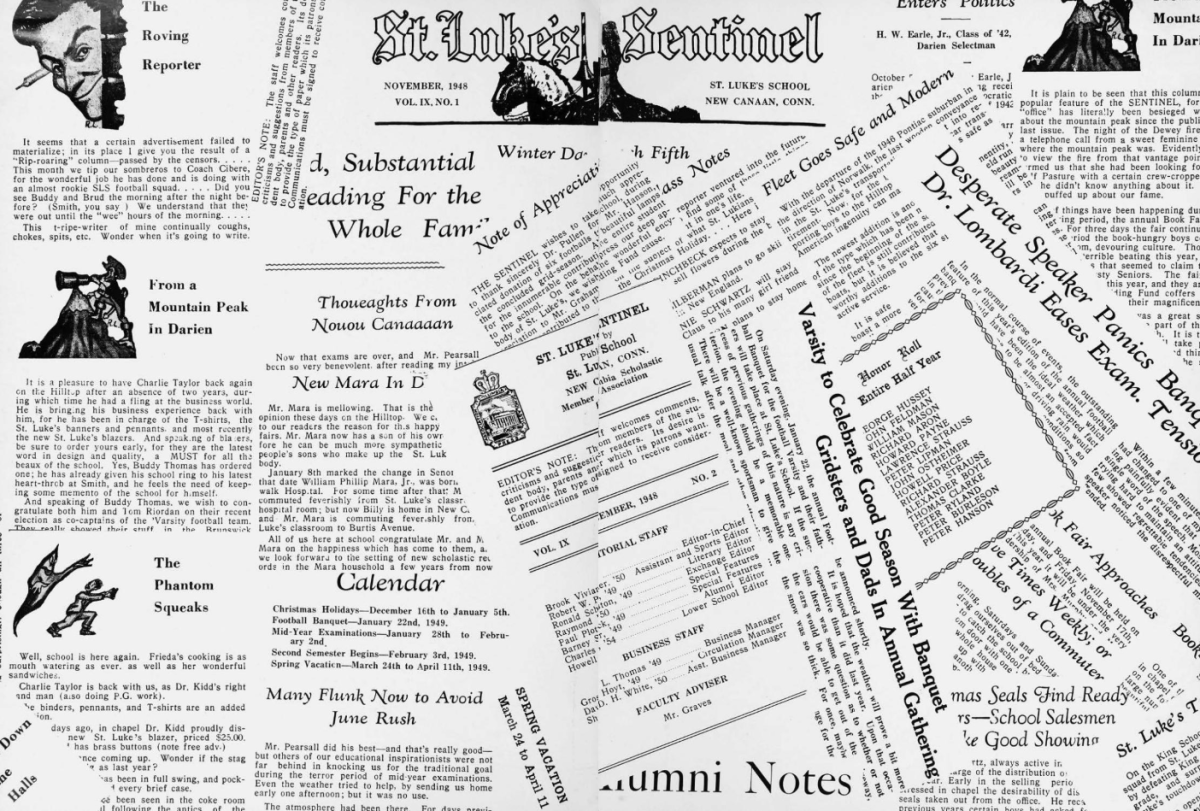In the Fall of 2020, St. Luke’s transitioned from AP classes to their own Advanced Curriculum, retaining only four AP classes: AP Calculus AB, AP Calculus BC, AP French, and AP Spanish. While this shift has allowed teachers to use more flexible curricula and given students more freedom in their assignments, it has also raised significant concerns regarding AP testing. Students enrolled in advanced classes have the option to take the corresponding AP Test. For example, students taking Advanced Biology could take the AP Biology exam. However, these students are at a disadvantage compared to students at other schools taking a dedicated AP class, which directly prepares them for the exam, causing SLS students to cram their studying alongside other coursework.
So why do so many students still choose to take the AP exam? Depending on the college, high AP exam scores can boost one’s application and even earn college credit, saving valuable time and money. A score of a 4 or 5 on an AP exam can be counted towards college credits, allowing students to get a head start on their first-year requirements. With this extra time, students may pursue a second major or minor or even graduate from college earlier. While some colleges do not offer credit for AP exams, many still value AP classes from an admissions standpoint and consider them a sign of a competitive applicant. On the St. Luke’s Website, Middlebury College, the University of Notre Dame, Massachusetts Institute of Technology, and the University of Richmond share that transitioning away from the AP does not harm applicants. However, it is essential to remember that these are private schools that are connected with St. Luke’s and understand the school’s advanced classes. The situation may differ for larger state colleges with less familiarity with the school and its curriculum.
Noticing the anxious talk around the Upper School about feeling unprepared for AP exams, I interviewed St. Luke’s students Lucie Geist ’25 and Calum Regan ’24 about their experiences with Advanced classes and AP tests. Regan, taking six advanced classes this year, explained his decision not to take any AP exams: “I was told the advanced material did not align with the AP Curriculum. With my busy schedule this year, I could not find time to study and take the tests.” Following this response, I asked him if he wished he had the opportunity to take AP classes instead of his advanced classes, and he said, “I have preferred the Advanced format for my humanities courses. Teachers seem to be much more engaged and helpful when given more control of the course, and I feel as though I walk away knowing more. As for STEM classes, I would have preferred an AP format class in my Advanced Statistics class this year as I believe I could have taken the AP and checked that box before college if my class stuck to the Stats curriculum.”
Next, I talked to Lucie Geist ’25 about how her classes prepared her for the AP exams, as she has decided to take both the AP Bio and the AP US History exams. She explained how her classes covered most of the topics featured on the exam; however, she needed to prepare for the formatting of the AP tests. “For example, the largest part of the AP US History exam is a document-based question, and we have not written any DBQs this year,” said Geist. Next, I asked her if her teachers used class time to prepare or discuss the AP exams. “No,” said Geist. “My history teacher has created study times for us to meet with him as a group every few Saturday mornings, which has helped me adjust to the test’s formatting. However, we have not prepared in our actual class, and my biology teacher has never mentioned the AP test.”
As St. Lukes students approach the current and upcoming weeks of AP exams, they each have a different outlook and stress level. While some students, especially those enrolled in AP classes, are continuously stressed and dedicate their time to preparation, others approach the test with little to no preparation to see how they do. Interestingly, despite the anxious talk circulating in the Upper School for AP exams, a survey of 30 juniors and seniors shows that a significant majority (68%) would prefer taking an advanced class over an AP. Overall, students prefer the engaging and adaptable curriculum of advanced courses over a traditional AP curriculum despite the extra stress and workload necessary to prepare for AP exams.















